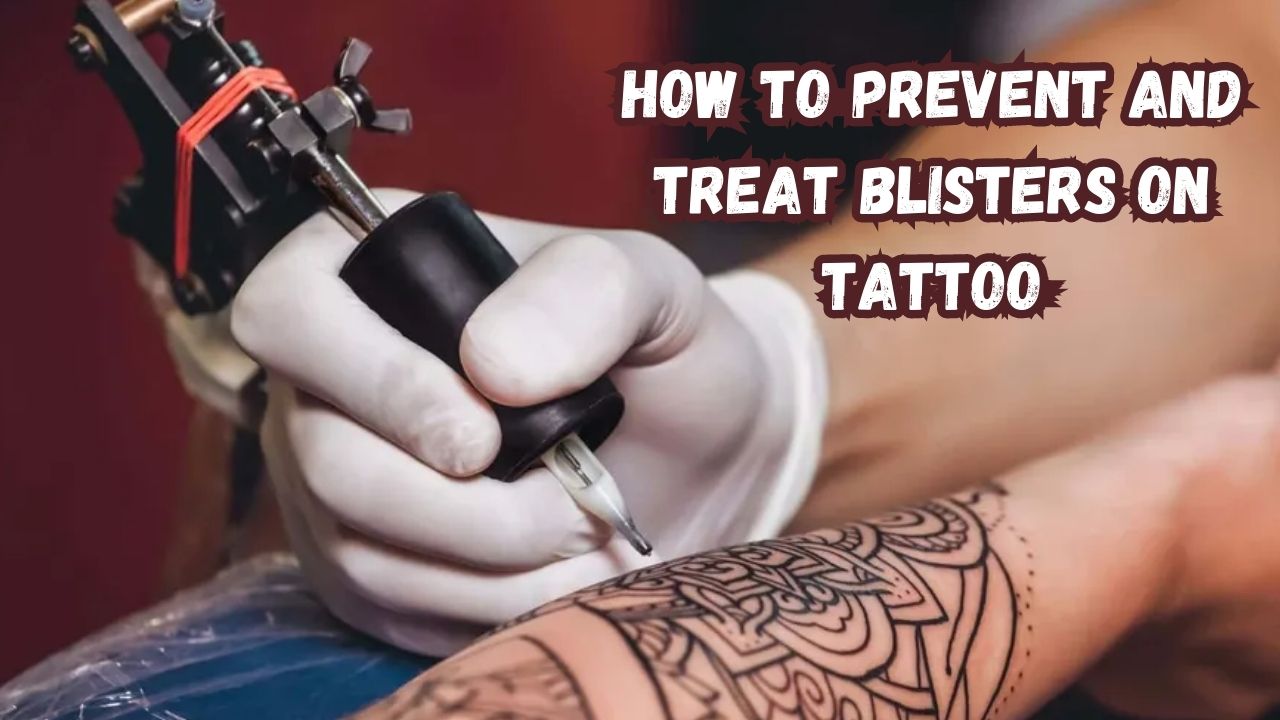Having sensitive skin and a passion for tattoo ink can be tricky since it might cause blisters on the tattoo. Even a person with normal skin conditions can experience acne and tattoo pimples while the tattoo is healing. But this issue is significantly more relevant and factual for people with sensitive skin or who have already affected the immune system due to infection. There is no denying the fact that regardless of the reason, acne and infection on tattoos can be pretty harsh and suffering for the person. How to prevent and treat blisters on tattoos so it doesn’t affect our tattooing experience negatively?
If we stop assuming stuff and consult expert dermatologists, tattoo blisters and acne are caused by a few reasons. Excessive moisturization, harsh and toxic aftercare products, rubbing or pressurizing healing skin, and allergic reactions are two causes of blisters on tattoos. But each reason for these infections and allergies has a cure and remedy available for us. All we have to do is follow medical experts’ instructions and maintain proper aftercare of the tattoo.
Preventing Blisters on Tattoo:
For anyone who cares about their well-being and health, preventing a disease, infection, or allergy is way better than its treatment. While many people give proper attention to prevention and precautions, others neglect them. This results in a negative impact on their health and leads to suffering and waste of energy. Hence, it’s always recommended to follow the instruction of an expert and avoid problems as much as possible.
To help you understand to get rid of tattoo pimples and blisters, the following are some preventions:
Dry and Clean Skin
Keeping your tattooed skin dry and clean is important in healing and prevents tattoo infection. If your skin is overly hydrated and moisturized, it can lead to blockage of skin pores which is not healthy for healing. Moreover, if the skin is unclean and you’re not maintaining cleanliness, it invites risky infections and allergies.
- So you should keep the skin clean using prescribed aftercare products and dry it with soft and comfortable material.
Soft and Comfortable Outfit
If your skin is hygienic and well-maintained, there is another reason for blisters on tattoos. Wearing tight, harsh, unhygienic, and uncomfortable clothes lead to many problems with healing skin. Wearing a tight and uncomfortable shirt, pants, or any other cloth in your outfit can cause tattoo rash and inflammation. This swelling and rash on the skin are not good for your healing tattoo.
- Hence, wear soft, comfortable, and clean clothes of your outfit whenever you have a healing tattoo or wound on your skin.
Weather Protect
The third prevention that comes to our list for tattoo infections and pimples is against extreme environmental conditions. If it is too hot, cold, rainy, or windy outside, it’s not beneficial for your skin when healing a wound. Moreover, UV rays can also negatively affect the healing of tattoos. Using prescribed sunscreen, tattoo balm, and other aftercare products is handy for weather problems.
- So, to avoid getting tattoo acne or blisters, you should prevent exposing your tattoo to harsh weather conditions.
How Tattoo Pimples and Blisters are Different
Looking at a normal person, tattoo pimples and blisters can be similar, and the difference is not visible. But dermatologists say there is a clear difference between both skin conditions, which is important for their prevention and treatment. To help you understand them better, let’s discuss how to tattoo pimples and blisters are different:
- The appearance of tattoo pimples is defined as a small, red bump on the skin, while a tattoo blister is larger and filled with fluid.
- Tattoo blisters are usually caused by over-moisturization of the skin, while a bacterial or fungal infection causes tattoo pimples.
- A tattoo pimple usually consists of pus (dead white blood cells, skin cells, and dead infectious microorganisms), and a tattoo blister is filled with more transparent and clear fluid.
- You can cure tattoo pimples with antiseptic cream, but tattoo blisters are cured with more care and avoiding touching or applying harsh products.
Treatment of Tattoo Blisters:
Now, to the other half of our discussion, how to treat blisters on tattoos? Treatment of tattoo blisters is very important to understand if you still need to follow prevention in the first place. Fortunately, this infection is not incurable, and expert dermatologists have proper guidance on treating tattooed skin conditions.
Non-Infected Tattoo Blisters
If your skin has tattoo blisters but is not infected yet, you are lucky. Your next mission should be to prevent infection into the blister as much as possible. In this case, the key treatment is to keep the skin cleansed with lukewarm water and gentle soap, avoid rubbing and scrubbing on blisters directly, and dry skin with a soft cloth and gentle pats. A prescribed and breathable saniderm or dressing can also help treat non-infected tattoo blisters.
Infected Tattoo Blisters
Unfortunately, if the tattoo blisters have developed an infection, the best option is to consult a medical professional. Most likely, a dermatologist would analyze your skin and tattoo blisters first. After proper analysis, they would treat your infected skin thoroughly and advise aftercare products to you. They might even advise you to drain out pus so it doesn’t lead to more infection. But remember to maintain a soft and gentle approach while treating tattoo pimples and blisters.
Conclusion:
Tattoo infections are sometimes inevitable, but how to prevent and treat blisters on tattoos? We discussed the topic in a brief yet helpful manner today. You should follow each prevention mentioned earlier to avoid tattoo pimples and other infections. But if the tattoo still gets infected and blisters pop out, you shouldn’t panic and follow the treatment carefully. It’s always better to consult an expert if the healing tattoo infects you. Thanks for reading.

Leave a Reply